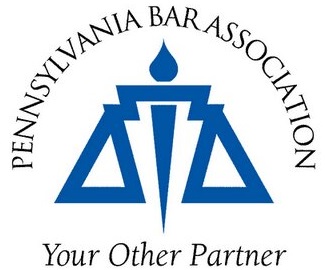Ethical Obligations for Attorneys Using Social Media
The Pennsylvania Bar documents its comprehensive social media policy.
I was researching content for a follow-up blog post about lawyers’ use of social media and ran across an interesting update from the Pennsylvania Bar Association. The document, published earlier this year, is titled Formal Opinion 2014-300, Ethical Obligations for Attorneys Using Social Media.
My first inclination was to keep researching, as the document is 18 pages long, it’s years too late, and most opinions I’ve read regarding social media normally raise more questions than they answer. Fortunately, I glanced at the first two pages before moving on. What I found was probably the most comprehensive social media policy for lawyers ever published by a Bar Association. The PA Bar took its time and provides some great guidance.
The PA Bar’s excellent guidance on lawyers’ use of social media
 These are rules that we can all live by, defining how lawyers can and cannot use social media in their practice of law. As I ran through questions that other lawyers often ask me regarding their social media activities, the PA Bar guidance addressed almost every one. Here is the PA Bar’s very concise set of social media recommendations from page 2:
These are rules that we can all live by, defining how lawyers can and cannot use social media in their practice of law. As I ran through questions that other lawyers often ask me regarding their social media activities, the PA Bar guidance addressed almost every one. Here is the PA Bar’s very concise set of social media recommendations from page 2:
- Attorneys may advise clients about the content of their social networking websites, including the removal or addition of information.
- Attorneys may connect with clients and former clients.
- Attorneys may not contact a represented person through social networking websites.
- Although attorneys may contact an unrepresented person through social networking websites, they may not use a pretextual basis for viewing otherwise private information on social networking websites.
- Attorneys may use information on social networking websites in a dispute.
- Attorneys may accept client reviews but must monitor those reviews for accuracy.
- Attorneys may generally comment or respond to reviews or endorsements, and may solicit such endorsements.
- Attorneys may generally endorse other attorneys on social networking websites.
- Attorneys may review a juror’s Internet presence.
- Attorneys may connect with judges on social networking websites provided the purpose is not to influence the judge in carrying out his or her official duties.
Should GA adopt a similar policy?
Absolutely! Social media is part of our core culture, and we actively use it to connect and communicate for business and personal purposes. The GA Bar Rules address some of the above-listed items, but you have to infer the information from the more traditional rules. For example:
- Is it OK to send client communication through instant messaging? That may be considered a breach of confidentiality under Bar Rule 1.6 Confidentiality.
- Can I connect with a judge on LinkedIn? You would have to review the ex-parte communication components of Bar Rule 3.5 Impartiality as well as Bar Rule 8.4 Misconduct to decide for yourself. If you’re wrong you could potentially subject yourself to discipline.
Other areas, like lawyers’ ability to solicit online reviews (and applicable advertising disclosure requirements), aren’t directly addressed, even in the recent updates to Bar Rule 7.2 Advertising.
Until the GA Bar develops its own social media policy like other public and private entities have done, you might want to adopt the PA Bar’s guidance. Treat your social media campaigns like advertising campaigns. Keep your communication truthful and professional. Be aware of the latest technologies, including potential opportunities (jury screening) and issues (data security).
Click here to read the full Formal Opinion 2013-300 on my website. Thanks to Victoria White, Ethics Counsel for the Pennsylvania Bar Association, for providing a copy.
Douglas Chandler
Join Douglas’ LinkedIn group: Attorney Ethics and Professional Liability.

